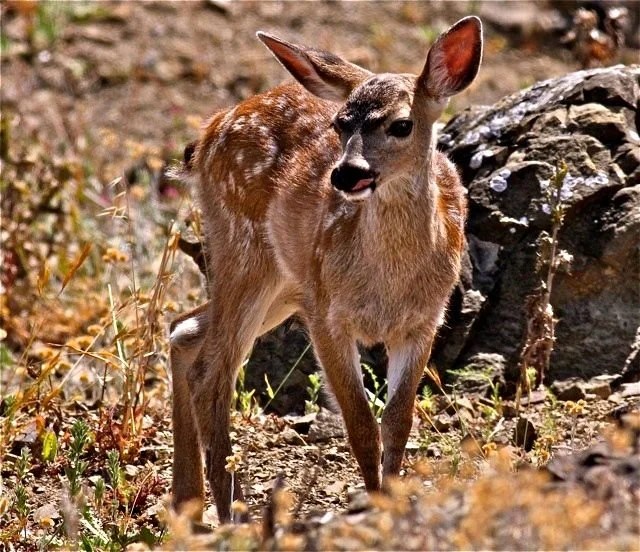IS IT BAD TO LOVE BAMBI?
As a little girl I watched the Walt Disney film Bambi for the first time at the Gaumont Theater (now the Coronet) in Notting Hill Gate in London. I was ten years old. On that day, Flower the skunk, Thumper the rabbit, and Bambi, with his long lashes and spindly legs, became indelibly etched in my heart. I cried inconsolably when Bambi's mother was shot by hunters. So does this mean I have Bambi Syndrome, as scientists disparagingly call it? Is it possible that you may have it too?
What scientists and wildlife managers call Bambi Syndrome, according to Stephen R. Kellert in his book Birthright, is essentially their term for anthropomorphism––imbuing animals and other non-human beings with human feelings. They describe the syndrome as being responsible for what they deem the hysterical response to everything from the hunting of wolves to the felling of forests. An emotional response is meant to be irrational, and therefore unworthy of consideration.
But is this really so?
Is it really irrational to imagine that a young doe on losing his or her mother will feel afraid and lost? Haven't we seen mother bears distraught at the loss of a cub? And haven't we all read stories of inter-species friendships that seem to clearly point toward the fact that animals––just like us humans––will go to great lengths to experience play, affection, companionship?
Don't aspen trees share one massive beating rooted heart? Aren't we too connected by something deep and ancient?
Rationality is overrated. What we need now is to put relationship first. Love before logic.
Jane Goodall was presented with a large stuffed chimpanzee by her father when she was just one year old. Jubilee and Jane became inseparable. I'm sure Jane Goodall talked to Jubilee, loved him silly, and worried about his health and happiness. I am also very certain that Jubilee set Jane on her path to becoming the most famous chimpanzee expert in the world.
Today, I can't see a deer on my daily walks without being brought back to the sense of aliveness I experienced watching Bambi––that young fawn's sadness, his joy, his love of the forest, my own. His world, my enchantment. And enchantment is vital. To live in an enchanted world, where everything has an inner life and sacredness, is the beginning of developing an ecological perspective.
The word enchantment comes from the French word chanter, to sing. When we are enchanted, we sing the world alive.
And that's what scientific rationalism will never manage to do.
If you have a story of falling in love with a fictional creature--either in the movies or literature--please share it here.

